Putting 3PLs to the Text
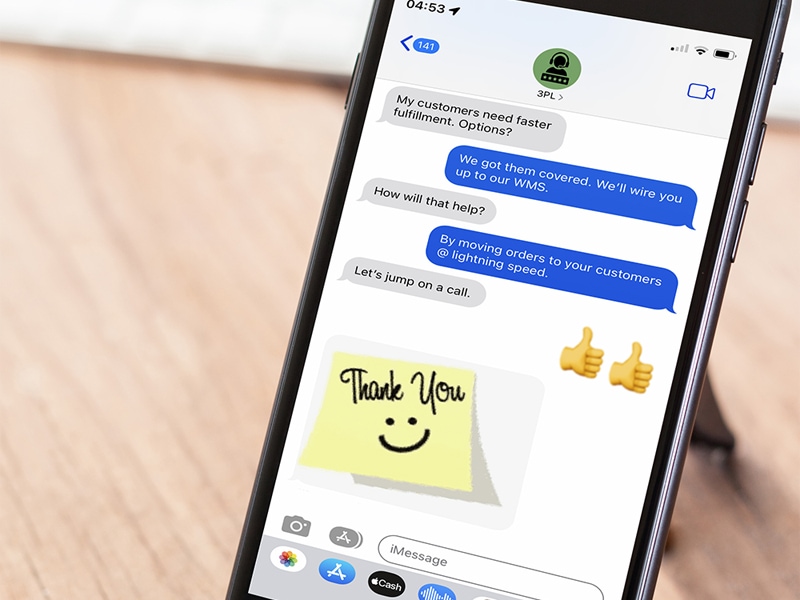
There’s no such thing as TMI when third-party logistics providers work diligently with shippers to help them navigate macro changes and to provide accountability, transparency, efficiency, and streamlined supply chain operations. It’s 3PLs FTW.
The market for global logistics business outsourcing was estimated to top $194 billion in 2022 and is forecast to grow 7.7% annually through 2032, research firm InsightSLICE reports.
Behind this increasing demand is the explosion in ecommerce, extensive global supply chains, and growing interest in integrated supply chain solutions, the report notes.
As they consider logistics outsourcing, shippers look for several capabilities. One is accountability. Shippers are focusing on key performance indicators, particularly order and inventory accuracy, and shipping timeliness and accuracy, says Michael C. DeFabis, vice president of sales and marketing with IDS Fulfillment.
Transparency and the ability to monitor operations in as close to real-time as possible are also critical, he adds.
And as shipping costs increase, clients ask their third-party logistics (3PL) providers to help them find ways to help cut this expense. Options often include changing shipping methods or time frames.
Logistics providers work diligently with their shipper clients to help them navigate these macro changes and to provide accountability, transparency, efficiency, and streamlined supply chain operations. The firms highlighted here are among them.
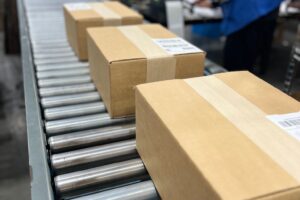
Activewear company Bandier worked with a fulfillment solutions provider to optimize packaging and warehouse operations. The improvements lowered costs with no impact to customer service.
Streamlining Ecommerce? NBD
It has been a busy nine years for Bandier, which offers fashion-forward activewear brands. The company launched with one location and now operates several physical stores, as well as ecommerce and wholesale divisions. Through Studio B, it hosts virtual and in-person fitness classes.
Double Down on Online
Like many retailers in 2020, Bandier had to shut its physical stores and double down on online initiatives. Boxzooka, which offers order fulfillment and other services, has been helping Bandier leverage exponentially higher ecommerce volumes and streamline operations.
For instance, shipping costs had been eclipsing fulfillment expenses. “That ratio didn’t work for a company looking to grow,” says Melanie Lau, chief financial officer with Bandier, which then challenged Boxzooka to help them cut shipping costs without hurting customer service or compromising delivery timeframes and accuracy. “They did,” she adds.
One step was to examine dimensional weight. Boxzooka’s Client Success Team traversed Bandier’s warehouse floor and studied packaging operations to identify potential changes. The improvements included resizing boxes to eliminate excess space, shifting some shipments from cardboard boxes to poly mailers, and making sure any air gaps were eliminated from mailers to avoid additional dimensional weight.
“The changes are of no impact to the customer, but they lower costs,” Lau says.
Bandier also leveraged Boxzooka’s virtual rate shopping program to explore rates and methods and lower its overall shipping cost structure. Working with several shipping services, versus relying on a single one, helps rein in costs.
“It’s using technology to get better, cheaper rates,” says Brendan Heegan, Boxzooka’s founder and CEO.
In the past, many vendor packages would arrive at Bandier without advanced shipment notices visible. Trying to determine the purchase order and SKUs (stockkeeping units) tied to each package would become “a science project,” Heegan says.
Boxzooka helped Bandier develop vendor guidelines so the company receives goods in a way that allows for more efficient processing.
Since implementing these changes, Bandier has cut the number of work orders to vendors by about 40%. “It was a big win,” Lau says.
Boxzooka also helped Bandier identify better end-of-life solutions for some returns, including those that are barely damaged—say, a sneaker that’s in great shape, but was returned in a slightly damaged box. Previously, Bandier would sell this merchandise at “an incredibly low recovery rate,” Lau says.
Now, Bandier offers the goods to Boxzooka employees at a rate that’s a win for both the employees and Bandier. “They go to people we appreciate,” Lau says.
Experience, communication, and a passion for the Bandier brand have been key to the partnership with Boxzooka. “They listen and come to the table with solutions,” Lau says. “You don’t find partners like that every day.”
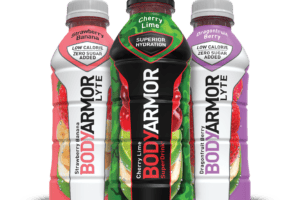
When demand for its sports drinks soared during the pandemic, BODYARMOR found capacity by partnering with a 3PL.
Growing Capacity? GR8!
For several months in 2020, the shutdowns tamped down demand for many consumer products. “Then, the consumer product goods (CPG) market exploded,” says Chris DeLeon, director of transportation operations with BODYARMOR, which offers a premium sports drink, mostly through retailers. The Coca-Cola Company acquired BODYARMOR in November 2021.
“We needed capacity fast,” DeLeon says. He joined the company in 2020, with a goal of building out its carrier network and developing a strategically planned distribution network that would support both current demand and future growth.
Thrown into the Fire
DeLeon brought Nolan Transportation Group (NTG) on board in August 2020. “They were thrown to the fire,” he says, adding that sales volume doubled soon after NTG joined. NTG and Transportation Insight are divisions of Transportation Insight Holding Company.
For its first assignments, NTG assisted with spot-based shipments. Soon, though, the two companies shifted to a contractual partnership, says Lucas Buchholz, vice president, enterprise sales strategy with NTG.
He and his colleagues have helped BODYARMOR create an optimal carrier network and develop the operating processes that provide the logistical support the growing business needed.
“We wanted to leverage NTG’s multimodal capacity and create a more agile supply chain and optimized network as we continued to grow,” DeLeon says. NTG analyzed BODYARMOR’s demand, and pinpointed areas where it was highest and most concentrated to determine the optimal warehouse locations. They also evaluated the likely impact of any changes to the company’s distribution network.
From this, NTG built an optimization model, highlighting where the company’s warehouses were located, where they should be located, and identifying an efficient transportation network.
“We made changes in our current network based on those recommendations,” DeLeon says, noting that BODYARMOR has been able to capitalize on some of the cost savings possible.
NTG’s technology also enables BODYARMOR to digitally track shipments, which helps to quickly mitigate any challenges.
“NTG tailored a team in place that knows our account and our expectations, and covers our business 24/7,” DeLeon says. They’ve also helped improve the company supply chain structure and brought visibility to BODYARMOR’s networks.
Now, the two companies have begun to partner on a “national rework program,” DeLeon says. The objective is to efficiently rework pallets that shift or are damaged in transit so they can quickly continue to BODYARMOR customers.
“NTG’s dedication to BODYARMOR is evident within our organization,” DeLeon says. “They’re on top of our business and bring true value.”
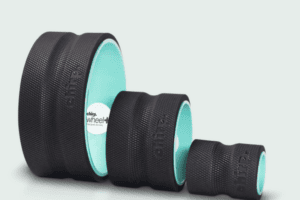
A 3PL helped Chirp—the company behind the popular Chirp Wheels for muscle pain—establish fulfillment from two locations instead of a single warehouse to speed orders to customers.
OMG! Lower Costs and Faster Shipping
Chirp, a company dedicated to simplifying pain relief, is behind “Chirp Wheels,” a product that helps people combat neck and back muscle pain.
The company began working with IDS Fulfillment with several goals in mind, including cutting storage costs and more quickly shipping to consumers—but without breaking the bank, says Carson Kelshaw, Chirp’s logistics director.
Other goals included finding a partner that values communication and transparency, offers competitive pick/pack fees without sacrificing quality, and provides access to Chirp’s goods anytime.
“There’s a perceived notion that when you work with a logistics provider, you lose control over your product,” says Craig Freeman, marketing manager with IDS Fulfillment. “We seek to make it more of a partnership.”
To that end, clients can visit IDS warehouses whenever they like and can gain visibility through the warehouse management system (WMS) to see where products are located within the warehouses.
In the past, Chirp’s fulfillment operation was located in a single warehouse in Utah. Today, Chirp, with IDS, manages fulfillment in one location in Utah and another in Indiana. Both have account managers who help oversee daily operations, and IDS helps manage direct-to-consumer orders and Fulfilled by Amazon (FBA) preparation, as well as wholesale orders through integrations with big-box retailers that sell Chirp products.
No Disruptions to Orders
IDS helped Chirp transition all its products to the two facilities over about one month. “We were able to fully transition without any disruptions to our daily order processing,” Kelshaw says.
Many companies that move to two warehouses find about a 70/30 split—roughly 70% of their orders head to the East Coast or Midwest, and 30% to the West Coast. Operating from two locations typically reduces the average zone, or the distance from the warehouse to the end consumer, from 5.4 to around 4.7.
Chirp dropped its average delivery time frame, which had been at four to five days, to three to four days. It also lowered storage and overall shipping costs. While it’s difficult to quantify the drop in shipping costs due to general rate increases by many carriers, “IDS has worked hard to provide us with great carrier rates,” Kelshaw says.
In searching for a logistics provider, “we truly wanted to find an extension of our own business,” Kelshaw says. IDS met that goal.
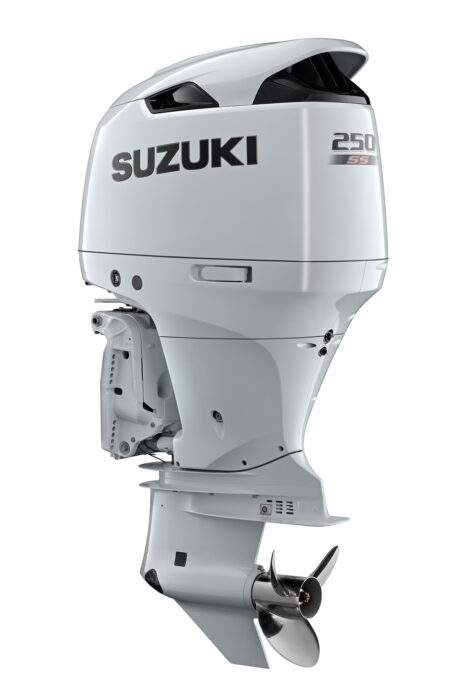
Outboard motors company Suzuki Marine expanded its transportation and warehousing services through a partnership with its 3PL.
And BTW, Seamless Expansion
When Suzuki Marine, an international designer, manufacturer, and distributor of outboard motors, decided to expand its warehousing and transportation services centered in the southeastern United States, it turned to supply chain solutions provider Averitt.
Averitt provides warehousing and regional less-than-truckload solutions and plays a significant role in the total volume of shipments moving from the warehouse to dealers, says Christopher Cobb, logistics manager with Suzuki.
Before bringing on new warehouse and transportation providers, Suzuki Marine enacts “a thorough and precise process,” Cobb says. These procedures usually take several weeks to complete, but Averitt made the onboarding process relatively simple and quick, he adds.
As a supply chain solutions provider, Averitt can be flexible to the needs of shippers like Suzuki, says Joseph Greek, senior content marketing strategist. The technology Averitt can offer, including visibility through its WMS, also helps shippers streamline their own supply chains, he adds.
The benefits of the partnership can be seen daily. “Since we started using Averitt’s transportation services, we have significantly improved on-time delivery, carrier communications, and supply chain visibility,” Cobb says. “Averitt’s website is simple to navigate, their online system tools are easy to utilize, and their staff quickly provides all requested information and documentation.”
Suzuki recently started dealer fulfillment operations out of Averitt’s warehouse in Grand Prairie, Texas, and is considering utilizing their regional LTL services out of the same location.
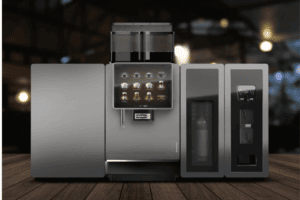
Franke, which offers modular coffee systems among other foodservice products, worked with a 3PL to develop a customized solution that optimizes LTL freight while balancing cost and service to customers.
ICYMI: Consolidating Carrier Services
Franke, a leading global supplier of products and services for residential kitchens, foodservice systems, convenience stores, and professional coffee-making, manages operations that span 60 companies across five continents, with an employee roster that tops 8,000.
Franke partnered with XPO to leverage the LTL freight transportation provider’s carrier pricing program.
XPO tailored the program for Franke’s various divisions, with an emphasis on the Home Solutions division. “Our goal was to optimize the carrier base for our division while balancing cost and service to customers,” says Rachel Davis, project manager at Franke.
“We utilize XPO as our primary outbound LTL carrier to customers within the United States with a new pricing program for our Home Solutions division,” she says.
XPO and Franke USA had been working together for several years, but their relationship grew significantly in 2022, when the Franke team consolidated its U.S. carrier base, says Marissa Christensen, vice president of national sales for XPO.
XPO’s coast-to-coast network, record of on-time service, and existing relationships with many of Franke’s vendors were key to this shift, she adds. Over about one month, XPO seamlessly completed Franke’s consolidation of carrier services across the United States.
XPO transports freight for Franke throughout the United States and Canada and provides premium care services, including a dedicated customer support team.
Because XPO has an in-house trailer manufacturing capability, it’s able to provide drop-trailer services to Franke. By dropping trailers at Franke’s locations and swapping them out after they are loaded, XPO enables Franke to consolidate carrier efforts on its docks while also providing more flexibility in how and when they load their trailers.
Through its coast-to-coast carrier network, XPO can meet Franke’s transportation needs with speed and efficiency. If Franke requests drop trailers on a Friday afternoon, XPO can accommodate and deliver them within the country with a one- to four-day turnaround time, Christensen says.
No Business Disruption
Another factor in the success of the rollout was XPO’s ability to onboard the additional business without disrupting Franke’s operations. Because XPO already had integrated relationships with some of Franke’s locations and its vendors, it was able to scale quickly, consolidating Franke’s multiple carriers without disrupting its supply chain.
The main benefit for Franke? “A streamlined outbound LTL shipping process for our Home Solutions division,” says David Salmon, procurement category manager at Franke.
Moving forward into the upcoming months, Franke plans to quantify the benefits of the new pricing program and partnership with XPO.
